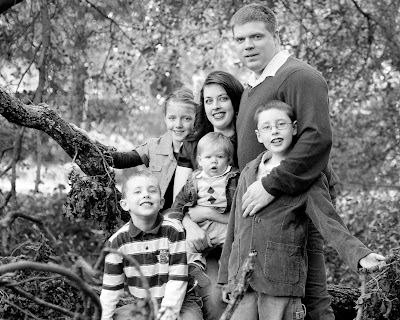When reading through the scriptures, I have noticed many
occasions where the prophet at the time explains why he is writing the
particular records he has chosen. Nephi writes the things of his soul; Jacob,
the things which he considered most precious; and Moroni writes of his
testimony of God, the Eternal Father. The most interesting explanation I found
was a small comment by the prophet Mormon where he says “I do this for a wise
purpose.”
Why do these men of God take the time out of their busy
schedules to keep records? What is this “wise purpose” Mormon speaks of? I
think Elder Richard G. Scott answered this best when he said: “We often leave
the most precious personal direction of the Spirit unheard because we do not
record and respond to the first promptings that come to us when the Lord
chooses to direct us.”
The prophets of the scriptures understood the importance
of writing down their revelations, both for their people, and for themselves.
It is imperative to our own personal growth that we not only recognize the
whisperings of the Spirit, but that we remember them. These promptings come
most often when we are tuned in by prayer and regular scripture study. A
revelation to the prophet Joseph Smith counsels us: “And as all have not faith,
seek ye diligently and teach one another words of wisdom; yea, seek ye out of
the best books words of wisdom; seek learning, even by study and also by faith.
Alma chapter 17, speaking of the sons of Mosiah, says in verse 2: “they were
men of a sound understanding and they had searched the scriptures diligently,
that they might know the word of God.”
Notice that in each of these scriptures, they did not
merely READ the scriptures. We are told they searched diligently. This is a
phrase that appears over and over again throughout the scriptures. So what does
it mean to search diligently? It means to be attentive to what you read, be
persistent in reading regularly, and carry out your studies with care and perseverance.
Additionally, 2 Nephi 32L3 tells us to feast upon the scriptures. Many of us do
not fall into these categories. Many of us read casually, sporadically, or make
just a quick scan of our scriptures. How then, do we become more active and
diligent as the prophets describe?
First we start with prayer. We pray for understanding.
We pray for guidance and inspiration as we read.
Second, we ask questions as we read. We ask for help
with a problem, advice on a relationship, or insight on a topic. Elder Henry B.
Eyring relates his personal approach to scripture study:
Sometimes
I go to the scriptures for doctrine. Sometimes I go to the scriptures for
instruction. I go with a question and the question usually is “what would God
have me do? Or “what would he have me feel? Invariably, I find new ideas,
thoughts I have never had before, and I receive inspiration and instruction and
answers to my questions
Third, it is a good idea to incorporate Conference
talks, hymns, Ensign articles and other materials into our studies. These help
to relate the scriptures to a more personal and contemporary setting. It also
gives us alternative view points and understandings on the same topic.
President Uchtdorf advises:
In
our learning, let us not neglect the fountain of revelation. The scriptures and
the words of modern-day apostles and prophets are the sources of wisdom, divine
knowledge, and personal revelation to help us find answers to all the
challenges in life. Let us learn of Christ; let us seek out that knowledge
which leads to peace and truth.
Fourth, take the time to ponder what you have read and
learned. The process of revelation and inspiration takes time and cannot be
forced, hurried or rushed. Take the time to sit quietly and give the Spirit the
opportunity to whisper to your heart the things you need to know.
Finally, write down your impressions, thoughts and
feelings, no matter how insignificant they may seem. You don’t know how
substantial they may be further down the road.
This step, while my personal favorite now, was my
biggest road block for a long time. At first I tried making notes in my
scriptures, but my methods were disorganized. I also found that the margins
were too small to hold the inspiration I had received. Often, I would come
across a scripture which I had marked some time before and have no idea why I
had marked the scripture. I would read it again and shrug, saying “it’s a nice
scripture, but what does it have to do with me?” Then I moved on to the Gospel
Library app on my phone. With its super portability and ample space for notes,
I thought it would solve my problem. However, my notes were still disorganized
and it became more difficult to just flip through my scriptures to see which
verses I had marked. I felt frustrated until I came across a website hosted by
my former seminary teacher. She shared her experiences with keeping a journal.
Not just a daily “I ate lunch in the cafeteria” journal, but a journal
dedicated to her personal revelations during her gospel studies. She included
the following quote from President Kimball: “Get a notebook… a journal that will
last through all time, and maybe the angels will quote from it for eternity.”
This was my moment to smack my forehead and say “why had
I not thought of this before??” It is just what the prophets of the scriptures
had been doing for millennia and look at the benefits their records have been
for countless generations. Then I thought: how much more could I benefit from
my own personal records, tailored to my particular struggles, needs, and
questions! Another quote from Richard G. Scott made a good case for keeping a
scripture journal. He said
You
will find that as you write down precious impressions, often more will come.
Also the knowledge you gain will be available throughout your life.
I was sold. How great would it be to be able to look
back through my journal, years down the road, and read all the inspirations I
have received? To know exactly why I marked that scripture and what it had to
do with me. I found that my journal made it easier to collect information on a
specific topic, from all areas of study, not just my scriptures. It enriched my
scripture reading immensely as I could refer to my notes from previous study
sessions and cross-reference my heart out. It made it easier for me to know
which direction to take at a particular time in my life. Elder Gene R. Cook
goes into more detail on this. He says:
The
more you not only hear, but abide by what you’ve been told, the more the Lord
will give to you. It will come more and more rapidly and you will begin to hear
and feel those impressions of the Spirit more quickly than you have previously
done.
I know this is true just from the experiences of writing
this talk alone. Last weekend, I was trying to take a nap and could not stop
thinking about my scripture journal and how it related to studying the scriptures.
I finally decided to get up and quickly jot down my thoughts. Nearly an hour
later, I had 6 pages of notes!
The blessings Heavenly Father has promised us when we
actively study are numerous. In D & C 88:63, He tells us, “seek me
diligently and ye shall find me.” In Mosiah 1:7 we are told that we should
“search [the scriptures] diligently that ye may profit therby.” And in D &
C 90:24 it reads: “search diligently, pray always, and be believing and all
things shall work together for your good.” My favorite promise, however, comes
from a quote from Joseph Smith:
Search
the scriptures… and ask your Heavenly Father, in the name of his Son, Jesus
Christ, to manifest truth unto you, and if you do it with an eye single to his
glory, nothing doubting, he will answer you by the power of his Holy Spirit.
And this is the best part:
You
will then know for yourselves and not for another. You will not then be
dependent on man for the knowledge of God; nor will there be any room for
speculation. No; for when men receive their instruction from him that made
them, they know how he will save them.
What a wonderful promise that is! To know, for
ourselves, without a doubt, that God is our Father and Creator and that he has
a plan for us.
Keeping a journal can bless not only our lives, but
those we come in contact with. It can be a resource for answering questions, a
wealth of knowledge for those who come after us, or even a simple example that
can change someone else’s life. A story in the May 2012 New Era exemplifies this
in one family.
A young man named Robbie decided to change his scripture
reading into scripture study by writing a simple journal entry about what he
had read each day. Over time, he noticed that not only was it influencing the
way he interacted with others, but that his journal became a good way to
receive personal revelation. He said “as I studied the scriptures and wrote
things in my journal afterward, I would look down at what I had written and say
‘that is not me who wrote that.’ It was personal inspiration given directly to
me from God. I have received answers to prayers and counsel for my life on
things that I need to do better.” As Robbie continued to grow spiritually, his
example prompted his brother Scott to begin keeping a journal. Soon after, their
younger brother Josh began keeping a journal as well. What started as a “study
the scriptures” plan for one young man, not only enriched his own scripture
study, but it also helped the rest of his family experience the joy that
scripture study can bring.
A journal can be anything you want it to be. A simple
entry after a day’s reading or a collection of notes on a specific topic. A
personal journal or a collection made by the family. It can include notes,
pictures, inserts and quotes from various sources. The sky is the limit. As
President Monson said: It is not the number of hours you put in, but what you
put in the hours that count. Let your journal reflect your personality and
study habits and it will be incredibly effective.
In closing, I want to share a quote from Neal A. Maxwell
that has stuck with me for many years:
The
prompting that goes unresponded to may not be repeated. Writing down what we
have been prompted with is vital. A special thought can be lost later in the
day through the rough and tumble of life. God should not, and may not, choose
to repeat the prompting if we assign what is given such a low priority as to
put it aside.
In this hectic and busy world we live in, let us
consistently draw ourselves away from the world to delve into the word of God
and reap the blessings from our hard work. Let us remember how important it is
to remain active and diligent in our studies. In my life, I have had many
opportunities to forget this, and many opportunities to be reminded of its
great importance. I have had many deep and painful struggles and have found overwhelming
comfort and knowledge through the careful and persistent study of the
scriptures. I know, beyond a doubt that they are the word of God. I know that
they were written for our day and for a wise purpose. I know that our Father
will bless us with understanding and increased revelation as we write down and
act upon the promptings we are given.
For more information on my beliefs, go here.
For more information on scripture journals, go here.






























